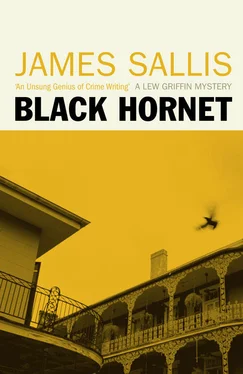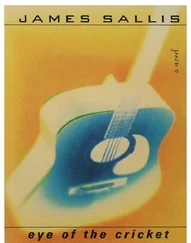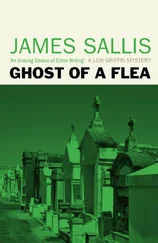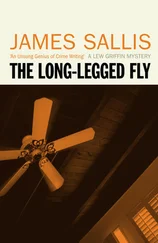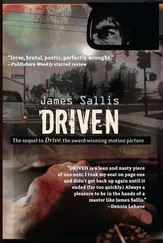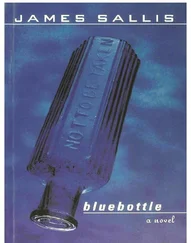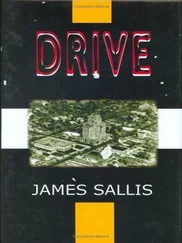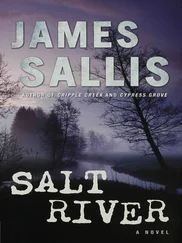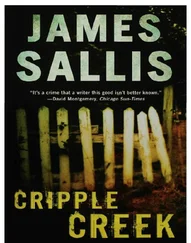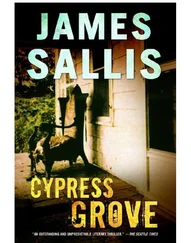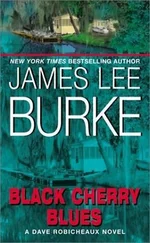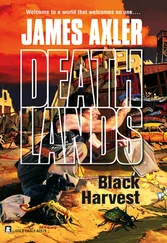James Sallis - Black Hornet
Здесь есть возможность читать онлайн «James Sallis - Black Hornet» весь текст электронной книги совершенно бесплатно (целиком полную версию без сокращений). В некоторых случаях можно слушать аудио, скачать через торрент в формате fb2 и присутствует краткое содержание. Жанр: Криминальный детектив, на английском языке. Описание произведения, (предисловие) а так же отзывы посетителей доступны на портале библиотеки ЛибКат.
- Название:Black Hornet
- Автор:
- Жанр:
- Год:неизвестен
- ISBN:нет данных
- Рейтинг книги:4 / 5. Голосов: 1
-
Избранное:Добавить в избранное
- Отзывы:
-
Ваша оценка:
- 80
- 1
- 2
- 3
- 4
- 5
Black Hornet: краткое содержание, описание и аннотация
Предлагаем к чтению аннотацию, описание, краткое содержание или предисловие (зависит от того, что написал сам автор книги «Black Hornet»). Если вы не нашли необходимую информацию о книге — напишите в комментариях, мы постараемся отыскать её.
Black Hornet — читать онлайн бесплатно полную книгу (весь текст) целиком
Ниже представлен текст книги, разбитый по страницам. Система сохранения места последней прочитанной страницы, позволяет с удобством читать онлайн бесплатно книгу «Black Hornet», без необходимости каждый раз заново искать на чём Вы остановились. Поставьте закладку, и сможете в любой момент перейти на страницу, на которой закончили чтение.
Интервал:
Закладка:
“Lewis. Lewis.”
They were dredging the dark waters for me. I drifted up again, weightless, up toward the light.
“Lew?”
“Luffen fill mecurr.”
“What, honey?”
I tried again. “Love and feel my care.”
“Don’t I, though.” She smiled, put her hand against my cheek, leaned in to kiss me. “You’re going to be okay.”
“Never have been.”
“Yeah, well. The truth is, you have, Lew. You just never knew it.”
“Where am I?”
“Touro. You were pursuing Carl Joseph.”
A few static scenes staggered back, like snapshots. That narrow steel ladder. Obstacles. Clouds and blue sky. Coming up over the rim of the roof.
Then all of it.
“The shooter.”
She nodded.
“When you rushed him, he went off the roof. Your head went into the wall. Fair contest, but the wall was harder. You have a concussion, Lew. It’s serious.”
It was serious, all right.
Verne believed that I had pursued the shooter and purposely killed him. So did the newspapers. Everyone believed I had intentionally killed him, I discovered in days to come. Again, as with Corene Davis, though this time not so anonymously, I’d become a kind of cut-rate folk hero.
Eventually I gave up trying to set others straight, gave up telling them again and again what actually happened. And after a while I wasn’t sure anymore that, at some level, I hadn’t hunted him down and intentionally killed him.
“How long have you been here, Verne? How long was I out?”
“Two days.”
She held a glass for me. Tepid water, an accordion-pleated straw. I drank with difficulty. My mouth and throat were a wasteland.
“You knew him, Verne.”
After a pause: “Yes, I did.”
“There was a red dress hanging on a hook against one wall. I’ve seen you wear it.”
Another pause. “He was a friend, Lew.”
“A friend. Like I’m a friend?”
She shook her head. “No. Not like that at all.” She looked away, then back to me. “I didn’t know the rest. Walsh told me.”
She held up the glass again for me, I drank and drifted off again.
Rushmore faces were there from time to time when I floated back up: Hosie Straughter, the Beret Brothers, Corene Davis, Elroy Weaver, Walsh, LaVerne. I was awake and dreaming at the same time. I don’t know how much of this was real, how much imagined.
Walsh told me: You did it, Lew.
The Beret Brothers: The community thanks you, man. We all do.
And LaVerne said: You’re important to me, Lew, more important than you’ll ever know.
That part wasn’t imagined.
Chapter Twenty-Nine
I’d propped pillows against the wall, had the air conditioner cranked so high I had to hold down the pages of my book. Every little while, ice settled into my glass of Scotch with a faint tinkling. Downstairs, in the darkness, roaches would be swarming over counters, turning them from white to black.
Upstairs, I was making the most of convalescence.
Every couple of days Hosie would bring over an armload of books from the library, some of them favorites of his, others chosen at random. The Plague, Raymond Chandler, Himes, Don Quixote, Notes of a Native Son , Melville and Poe, Sturgeon’s More Than Human.
It was like being a kid again, those endless drawling summers back in Arkansas when I’d read all morning, go for a swim in midafternoon, then come back and read long into the night.
A few days before, trying to understand what it was that so disturbed me about the shootings and about Carl Joseph’s death, I had written down everything I could remember about the affair. It’s been extremely helpful now, years later, writing this. The first part, anyway-since eventually, realizing I was getting nowhere, that I didn’t understand, would never understand, I began playing with it, improvising, letting the piece go where it would.
Walsh had showed up at the hospital not long after I floated back up to stay.
“Looking at you now, Lewis,” he said, “it’s gonna be damn hard not to laugh aloud the next time I hear someone say black is beautiful. You look like baked birdshit.”
“Colorful phrase.”
He shrugged.
“You doing okay? Yeah, yeah: dumb question. There anything I can get you, do for you?”
“You can get me out of here.”
“Lewis. Look at you. You got three needles in you, a couple of other things I don’t even know what they are. You got so much bandage wrapped around your head, you look like the Invisible Man. You get up and try to walk, children are gonna scream, strong men faint.”
“I hate hospitals.”
“Everybody hates hospitals. You think you’re some kind of special case? Listen: give it a couple of days. You still want to skip, I’ll come get you myself. We got a deal?”
I nodded.
“You’ve been a good friend, Don.”
“I hope to go on being.”
He said the department thanked me, and filled me in on what they’d been able to piece together about Carl Joseph.
“There’s not a lot. He left light footsteps-about the lightest anyone can, these days.”
“Light footsteps and a few bodies.”
Thirty-two years old, born in Mississippi, lived in and around New Orleans, or across the river in Algiers, since he was nineteen. Out of the country frequently in the late fifties, presumably working as a mercenary. Since then, when there was any record of employment at all, it was private security work. Hired out a couple of times as a bodyguard. His training had come courtesy of Uncle Sam, at the tail end of the Korean War. Didn’t last long in the military, but long enough to qualify as an expert marksman. Drummed out soon after. It was a long list of charges, beginning with in-subordination and running on to almost killing some guy in his barracks who used a word he didn’t like. No evidence of involvement in any radical group, no literature of same in his apartment.
I remembered Joyce, I fear the big words that make us so unhappy, and thought how close to home some of that history was.
“So what was all this about?” I said.
“Who knows? Something in his head, maybe, sunk in so deep there that we won’t ever be able to find out. Or something in the air: people everywhere climbing towers, mowing down citizens. He knew why he was doing it. It was obvious to him, the right thing, maybe the only thing. We probably won’t ever know.”
So some do almost manage invisibility-for themselves and their motives.
His rage, I thought. His outrage. His calm expression of it. That’s what was so terrifying. And why at the same time, at some level (at more than one level, truthfully), I identified with him.
Not long after, in a book Hosie brought around, I would read Borges’ story of Martin Fierro. After pursuing for years a fabulous desperado, Fierro at last brings him to ground. But suddenly he realizes that all along, all these years, it’s himself he has been pursuing and, turning, taking his place beside the desperado, he fights at Cruz’s side against his own men.
Three days later, when I was back home in my slave quarters, a visit from Bonnie Bitler gave me at least a few answers.
It was early evening. Traffic had relented and now was building again along Washington. Streetlights switched themselves on. The city had begun its transformation.
“Are you okay?” she said when I opened the door. I nodded.
“You don’t look very okay.”
“Believe me, I’ve been through worse.”
“May I come in?”
“Please.” I backed out of the doorway. “Would you like anything? Coffee, a drink? Tea?”
“No, thank you.”
She followed me into the kitchen. I chipped apart some ice cubes that had half melted together and dropped them in a glass, poured Scotch over.
Читать дальшеИнтервал:
Закладка:
Похожие книги на «Black Hornet»
Представляем Вашему вниманию похожие книги на «Black Hornet» списком для выбора. Мы отобрали схожую по названию и смыслу литературу в надежде предоставить читателям больше вариантов отыскать новые, интересные, ещё непрочитанные произведения.
Обсуждение, отзывы о книге «Black Hornet» и просто собственные мнения читателей. Оставьте ваши комментарии, напишите, что Вы думаете о произведении, его смысле или главных героях. Укажите что конкретно понравилось, а что нет, и почему Вы так считаете.
